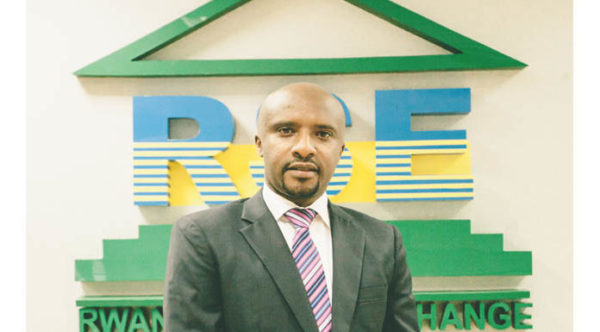More and more African financial markets are launching compartments dedicated to SMEs. A mode of financing- and placement- often advantageous. But behind the effects of announcement, the formula still struggles to win.
For African small and medium-sized enterprises, the finding is bitter: while they represent 90% of private companies on the continent and contribute more than 45% to employment, few are able to obtain external financing. Lucides, the teams of the African Development Bank and recall “[…] that more than 70% of SMEs have difficulty accessing funding over the medium / long term […]”, traditional financial institutions are often poorly equipped to assess and monitor the projects of these companies.
SME Compartments
Other options exist, however, such as stock market compartments for SMEs, more numerous to see the day in the African financial markets. Today, a dozen stock exchanges in the continent have a specific compartment dedicated solely to small and medium-sized companies: the Nairobi-based Growth Enterprise Market Segment, the Rwanda Stock Exchange Small-and-Medium Enterprise Segment, the Alternative Securities Market of Lagos, the Ghana Alternative Exchange, not to mention the more mature markets such as the alternative segment of the BVMT of Tunis, the Egyptian Nilex or even the AltX of Johannesburg. And the list should get longer. In Abidjan, at the end of March, the BRVM launched the Elite1 program, which aims to support ten companies with high potential in the sub-region, to the listing on the future compartment for SMEs of the Ivorian financial center. Meanwhile, a new cohort of companies benefiting from the program, expected by the end of the year.
At the origin of these stock exchange formulas dedicated to SMEs, there is first evidence: “if African financial markets attract an ever-increasing number of large companies seeking funding- and investors seeking investments- , they still seem inaccessible for many small and medium-sized companies, the latter being often intimidated by the entry ticket (costly introduction process, complex administrative procedures, binding regulations), “recalls Gérard Gasamagera, broker analyst MBEA Brokerage , in Kigali. Conscious of these difficulties, while being eager to widen their scope of activity, more and more
continent have decided to launch compartments specifically designed for the needs of SMEs, similar to what is done elsewhere in the world.
In this configuration, the rules are significantly eased (SMEs thus access at lower costs to the stock market to finance their development) but without the regulator compromises on the legal obligations of dissemination of financial information or compliance with the rules of good governance. All of these guarantees are offered to shareholders, who can hope for higher returns on these “growth stocks”.
Reluctance
In fact, the system is hard to convince. Launched in early 2010, the Nigerian Asem (8 listed companies), the Accra GAX (4), the Tanzanian EGM (5) and the Gems of the Nairobi Stock Exchange (5) struggle to take off, while that the alternative markets of the Rwandan and Ugandan Stock Exchanges are still waiting for the arrival of their first companies. Same to the BRVM of Abidjan or the Casablanca financial center where, despite the clear will of stock market authorities to move the lines, the arrival of SMEs to the coast is waiting for several years already. The stock market remains for many an esoteric universe, and companies as investors struggle to represent the potential offered. “We need to do more pedagogy,” agrees Charles Nsamba, the communications officer of the Uganda Capital Markets Authority. The barrier is also cultural, according to the Director General of the Kigali Stock Exchange, Pierre Célestin Rwabukumba. “Many entrepreneurs prefer to pay usurious rates to their bank rather than open their capital, communicate and share their profits,” said the head of the Rwanda Stock Exchange, whose SME compartment is still empty. Savers are also reluctant, says Samuel Adejumo, of Nigerian investment firm Pivot Capital, for whom “the performance of the shares of listed SMEs is not enough to attract investors in this market segment, the latter buying a share for the capital gain and dividend “. Another size limit attributed to SME sub-funds, their liquidity, “often very low,” explains Gerard Gasamagera.

Opportunities
However, some places like Tunis, Cairo or Johannesburg, where the alternative markets have respectively 13, 32 and 52 listed companies, are starting to find their marks. The latest addition to AltX on the South African stock exchange, Mettle Investments has joined a dynamic fund whose total market capitalization now exceeds $ 1 billion. An inclination for stock market financing which is not limited to SMEs in English-speaking countries. Quoted by our colleague Jeune Afrique, in 2014, Kais Kriaa, chairman of the board of AlphaMena, a financial analysis firm based in Tunis, recalled that “Tunisian companies have understood the benefits of opening up their capital. the latter […] being forced to look for alternatives to bank credit to finance themselves “. A problem familiar to the vast majority of SMEs on the continent, often faced with the reluctance of banks, and which therefore represents a major opportunity for alternative compartments for SMEs on African stock exchanges, alongside other channels (setting up guarantee funds, private equity …). Especially since “more tax incentives and accompanying measures would often be enough to create a more favorable ecosystem,” suggests a good connoisseur of the file. It remains to be seen whether this recent shift towards more SME compartments – and more financial inclusion – will bear fruit in the long run or if on the contrary, it will result in … a mirage.



